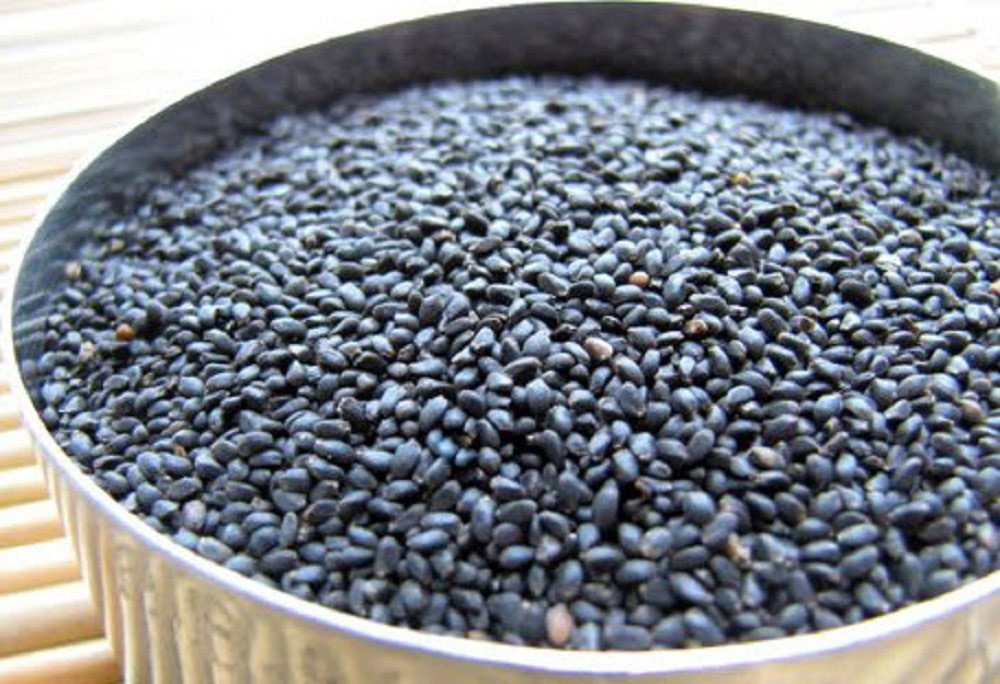Dayilim also emphasised the importance of using food-grade materials and maintaining hygienic production environments to ensure consumer safety.
News
Black Seed: An essential remedy during Ramadan

Black Seed: An essential remedy during Ramadan
As the holy month of Ramadan is here, Muslims worldwide prepare for a period of spiritual reflection, fasting, and prayer. Alongside these religious practices, attention turns to dietary habits that sustain energy levels and promote well-being during the fasting hours.
Among the various remedies and foods recommended, black seed emerges as a standout due to its rich historical significance and numerous health benefits.
Black seed, also known as Nigella sativa or black cumin, has been valued for its medicinal properties for centuries, with references dating back to ancient civilizations.
In Islamic tradition, the Prophet Muhammad is reported to have said, “Black seed is the remedy for all diseases except death.” This endorsement has cemented black seed’s status as a revered natural remedy within Muslim communities.
During Ramadan, when Muslims fast from dawn to sunset, maintaining energy levels and managing potential health issues become paramount.
Black seed offers a unique solution due to its diverse array of nutrients and bioactive compounds. It contains essential fatty acids, vitamins (such as B-complex and vitamin C), minerals (including calcium, potassium, and iron), and antioxidants like thymoquinone, which contribute to its potent health effects.
One of the primary benefits of black seed during Ramadan is its ability to regulate blood sugar levels. Fasting can sometimes lead to fluctuations in blood glucose, causing fatigue and mood swings.
READ ALSO:
- Putin: Your election not free, fair – UK slams Russia
- Brave female officer CSP Jummai Amawo arrests Kaduna’s notorious kidnapper
- NJC alleges bid by fraudsters to defraud retired judicial officers
However, black seed has been shown to help stabilize blood sugar, providing sustained energy throughout the day and preventing sudden crashes.
Furthermore, black seed possesses anti-inflammatory and immune-boosting properties, which are particularly valuable during Ramadan when the body may be under additional stress due to changes in eating patterns. Consuming black seed can support the body’s natural defenses and alleviate symptoms of common ailments, ensuring a smoother fasting experience.
Research has also highlighted black seed’s potential in promoting digestive health, relieving symptoms of indigestion, bloating, and gas. This is especially relevant during Ramadan, as the pre-dawn meal (suhoor) and the post-sunset meal (iftar) may differ from usual dietary habits, potentially leading to gastrointestinal discomfort.
Incorporating black seed into one’s diet during Ramadan can be achieved in various ways. It can be consumed directly in its seed form, added to dishes as a spice, or taken as an oil or supplement. Many traditional recipes for herbal teas, bread, and desserts incorporate black seed, infusing meals with its distinct flavor and health benefits.
Despite its numerous advantages, it’s essential to remember that black seed, like any supplement or remedy, should be consumed in moderation and as part of a balanced diet. Consulting with a healthcare professional before introducing black seed or any new dietary supplement is advisable, particularly for individuals with existing medical conditions or those taking medications.
As Muslims around the world prepare to observe Ramadan, the significance of incorporating black seed into their dietary regimen cannot be overstated. With its rich history, proven health benefits, and versatility in culinary applications, black seed stands as a valuable ally in ensuring a nourishing and spiritually fulfilling fasting experience.
Black Seed: An essential remedy during Ramadan
News
Yahaya Bello: American school returns $720,000 advance tuition fees, gives reasons

Yahaya Bello: American school returns $720,000 advance tuition fees, gives reasons
The American International School, Abuja, on Saturday, provided additional information and context to clarify the issues around its decision to transfer the school fees paid by former Kogi State governor, Yahaya Bello, to the Economic and Financial Crimes Commission (EFCC).
Contrary to some media reports suggesting that the institution was still in the process of turning over the funds, the statement clarified that it had actually done so, as recently confirmed by the EFCC Chairman.
In a brief statement signed by Head of School, Greg Hughes, the international co-educational institution, which was established in 1993, stated that “our compliance to remit these funds underscores our commitment to upholding institutional integrity and our respect for the national institutions of Nigeria”.
READ ALSO:
- NAFDAC seals 50 Kaduna shops selling cooking oil in dirty environment
- Japa: 72,000 doctors dumped Nigeria last year, says MDCN report
- Chery celebrates automobile excellence, creativity at Lagos roadshow
It explained further: “Upon learning that the school fees we accepted in good faith were, in fact, part of an ongoing case with the EFCC, we turned over these funds in compliance with this federal commission’s request.”
The statement did not name Bello directly but the reference to “a family with children enrolled at the school” was clear enough in the light of recent media reports.
Citing the subjudice status of the issue as a result of the ongoing case between the EFCC and Bello, the school averred that “we will refrain from making any further comments at this time.”
Yahaya Bello: American school returns $720,000 advance tuition fees, gives reasons
News
NAFDAC seals 50 Kaduna shops selling cooking oil in dirty environment

NAFDAC seals 50 Kaduna shops selling cooking oil in dirty environment
The National Agency for Food and Drug Administration and Control (NAFDAC) has shut down 50 outlets in Kaduna State due to the sale of edible oil in unhygienic conditions.
The action was taken as part of a sensitization workshop aimed at educating dealers on Registration Procedures and Food Management. This information was shared in a statement released on the agency’s official handle on Saturday.
READ ALSO:
- Japa: 72,000 doctors dumped Nigeria last year, says MDCN report
- Chery celebrates automobile excellence, creativity at Lagos roadshow
- Why the world didn’t end on April 25, by Prophet
The statement partly read, “NAFDAC has sealed fifty outlets in Kaduna for dispensing edible oil under unhygienic conditions, aiming to prevent potential health risks associated with contamination.
“The Director, North-West Zonal Office, Mrs. Josephine Dayilim highlighted the dangers of consuming oil processed in unsanitary environments, emphasising the risks of food poisoning, gastroenteritis, and even cancer due to inadequate processing and corrosive equipment.”
News
Japa: 72,000 doctors dumped Nigeria last year, says MDCN report

Japa: 72,000 doctors dumped Nigeria last year, says MDCN report
The Medical and Dental Council of Nigeria has expressed concern over the detrimental impact of medical practitioners emigrating abroad in search of better opportunities, revealing that 72,000 out of 130,000 registered doctors failed to renew their practice licenses in 2023.
The MDCN highlighted that only a meager 58,000 have renewed their licenses, emphasizing that such a trend will not only strain healthcare services but also overwhelm the limited available personnel.
Dr. Fatima Kyari, the Registrar of the body, conveyed these sentiments on Friday during the induction and oath-taking ceremony of 20 newly qualified doctors at the Edo State University, Uzairue.
“The council has so far registered 130,000 medical doctors to practice in Nigeria since its inception 61 years ago and the council is mandated to regulate the practice of medicine, dental, and alternative medicine in Nigeria.
“But only 58,000 doctors have renewed their annual practising license in the year 2023 following the increase in migration of doctors outside the country,
“However, the doctors must meet the requirements to earn those increases in quota. We will partner with them to ensure that they meet those requirements, and as we try to ensure that, standards must be upheld,” he added.
Kyari, who was represented by the Deputy Registrar Dr Victor Kolawole, noted that the induction of the 20 newly qualified doctors would add to the existing workforce in the health sector which is being depleted by the day.
READ ALSO:
- Chery celebrates automobile excellence, creativity at Lagos roadshow
- Why the world didn’t end on April 25, by Prophet
- Liverpool draw West Ham as title hopes slip
She, however, admonished the inductees to uphold the ethics of the profession, warning that the council is mandated to regulate the activities of the practitioners as well as punish offenders.
The institution’s Vice Chancellor, Prof Emmanuel Aluyor, while speaking, explained that the upgrade of the Central Hospital, Auchi to a teaching hospital has enhanced facilities for the training of the medical students and uplifting the standard of healthcare services in Edo North and its environs.
While commended Governor Godwin Obaseki for his unwavering support for the university, he enjoined the inductees to uphold the ethics of the profession, saying he is confident that they would bring honour to the institution and MDCN.
“I urge the state government to sustain efforts towards improving facilities at Edo State University Teaching Hospital, Auchi.”
However, the acting Provost, of the College of Medical Sciences, Dr Kenneth Atoe, said 20 medical graduates from the college are the second batch of Batch B inductees.
He advised the newly qualified medical graduates to uphold the ethical standards of a medical professional, saying, “You must internalise the values of honesty, integrity, and selflessness.
“These virtues are not only essential for building strong doctor-patient relationships but are also integral to upholding the ethical standards and trustworthiness expected of a medical professional.
“By embodying these values, doctors not only fulfil their professional obligations but also contribute to the maintenance of public trust in the medical profession.”
Japa: 72,000 doctors dumped Nigeria last year, says MDCN report
-

 News7 days ago
News7 days agoWe’re not part of Yoruba Nation agitation, says MKO Abiola family
-

 metro6 days ago
metro6 days agoHow gunmen killed Babcock university lecturer, abducted two – Police
-

 Entertainment4 days ago
Entertainment4 days ago‘Tiwa Savage paid IT expert to wipe sextape off internet’
-

 Sports7 days ago
Sports7 days agoArsenal beat Wolves to return to top spot
-

 Politics6 days ago
Politics6 days agoAregbesola, Oyetola’s camps disagree over Osun shares
-

 News6 days ago
News6 days agoPull down Chinese supermarket that denied Nigerians entry, Shehu Sani tells FG
-

 News5 days ago
News5 days agoOsun governor introduces choice first lady amid controversy over who will receive Remi Tinubu
-

 International7 days ago
International7 days agoTwo children killed, many others injured as drunk driver rams into kids party






















